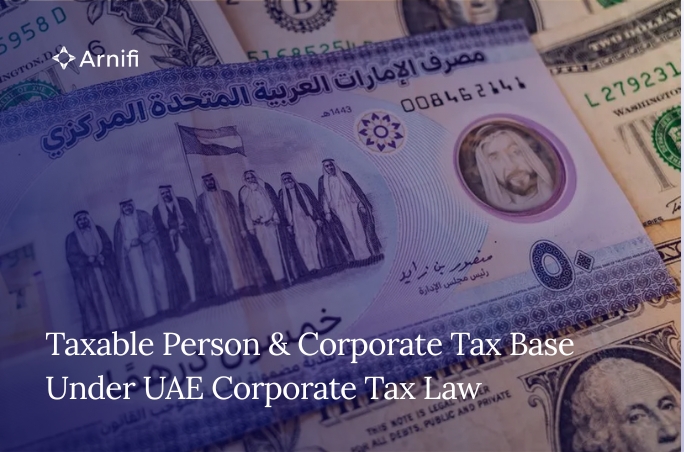Federal Tax Authority UAE | A Clear Guide to How The FTA Works and Who it Applies to
by Rifa S Laskar Nov 24, 2025  6 MIN READ
6 MIN READ

The Federal Tax Authority UAE is the federal body that administers, collects and enforces the country’s federal taxes, as described on the Federal Tax Authority website.
Since its creation in 2016 under Federal Decree Law No. 13 of 2016, it has taken charge of VAT, corporate tax and excise tax, working through its EmaraTax online platform and guidance library.
Let’s know everything about Federal Tax Authority in UAE in this detailed guide.
Table of contents
- How the Federal Tax Authority in UAE Works?
- Main Taxes Administered by the FTA
- How the FTA Uses EmaraTax and Online Services
- Who Must Register With the Tax Federal Authority UAE
- Federal Tax Authority UAE VAT Registration in Practice
- How FTA Audits and Penalties Work
- Simple Habits That Help Firms Stay Onside
- Final Advice
- FAQs
How the Federal Tax Authority in UAE Works?
The federal tax authority in the UAE sits at federal level, not emirate level. This means its rules apply across all seven emirates in a consistent way, as outlined in the UAE government VAT pages.
Federal Decree Law No. 8 of 2017 on VAT and Federal Decree Law No. 47 of 2022 on corporate tax both name the FTA as the competent tax authority. The detailed rules then sit in the VAT Decree-Law and the corporate tax law text.
The FTA Strategy 2023-2026 then confirms its mission to administer, collect and enforce federal taxes while increasing voluntary compliance and tax awareness in its published strategy document.
Main Taxes Administered by the FTA
The FTA is responsible for VAT on most goods and services supplied in the UAE at a standard rate of 5 percent, as set out in its general VAT guidance. It also administers corporate tax imposed under Decree-Law No. 47 of 2022. This applies at 9 percent on taxable income above the Cabinet-set threshold, detailed in the corporate tax law text.
Excise tax on products such as tobacco and certain sweetened drinks forms part of the same federal system. The authority also applies frameworks like Economic Substance Regulations and country-by-country reporting to align with international standards.
How the FTA Uses EmaraTax and Online Services
The FTA delivers most services through its EmaraTax online platform. It provides one login for VAT, excise and corporate tax registrations, return filing and payments via the EmaraTax portal.
The system also offers VAT calculators, TRN verification and dashboards that show pending returns and payments. The step-by-step submit and pay guidance explains how to file on time and warns that delays can trigger administrative penalties.
Who Must Register With the Tax Federal Authority UAE
The tax federal authority UAE requires VAT registration when taxable supplies and imports exceed AED 375,000 in a 12-month period, with voluntary registration available above AED 187,500.
Corporate tax registration is compulsory for juridical persons and certain natural persons that meet the tests in Decree-Law No. 47 of 2022, within the framework set out on the FTA corporate tax law page.
Recent press coverage reports that more than 640,000 businesses have already registered for corporate tax in the UAE. Non-registration when required can lead to administrative penalties and higher audit risk later.
Federal Tax Authority UAE VAT Registration in Practice
The federal tax authority UAE VAT registration process is fully online through EmaraTax, using the steps in the FTA VAT registration service. First set up an EmaraTax account, then create a taxable person profile before starting the VAT application. Applicants provide trade licence details, contact information and financial data showing expected or actual turnover against VAT thresholds.
Once the application is approved, the system issues a Tax Registration Number (TRN). It must appear on tax invoices and VAT returns.
How FTA Audits and Penalties Work
The Tax Procedures Law gives the FTA wide powers to request information and carry out field audits where needed. It’s set out in Federal Decree-Law No. 28 of 2022 on Tax Procedures.
If returns are missing or incorrect, the authority can raise its own assessments. It can add tax it believes is due and apply administrative penalties based on the schedules in the FTA penalties guidance.
Cabinet decisions also set service fees and list penalties for late registration and payment error. The FTA Strategy 2023–2026 confirms that audits and penalties sit alongside awareness campaigns designed to raise voluntary compliance.
Simple Habits That Help Firms Stay Onside
Clear mapping of each company to the correct tax registrations keeps obligations visible and avoids accidental gaps. Single internal calendars for VAT and corporate tax deadlines reduce missed filings and interest.
Good invoice discipline and reconciled ledgers allow finance teams to respond quickly when the FTA asks for supporting evidence.
Periodic internal reviews against FTA guides and public clarifications, such as those in the FTA publications library, help catch issues before they grow into assessments.
Final Advice
The FTA has moved federal tax in the UAE into a structured, portal-driven system that runs through its EmaraTax platform. It still expects strong internal records and clear decision trails set out in the FTA Strategy 2023–2026.
Businesses that understand the authority’s role and register correctly usually find tax reviews more predictable. When they keep tidy evidence in line with FTA VAT registration guidance and the broader corporate tax overview, reviews also tend to be less disruptive.
Working with Arnifi for accounting, bookkeeping and compliance support helps keep those records and filings ready before any review starts.
FAQs
What is the Federal Tax Authority UAE responsible for?
The FTA administers and collects and enforces federal taxes in the UAE, including VAT and corporate tax. Besides that, it collects excise tax too.
Which businesses must register for VAT with the FTA?
Businesses must register when taxable supplies and imports exceed AED 375,000 in a 12-month period, with voluntary registration available from AED 187,500.
When did corporate tax start under the FTA system?
Corporate tax applies for financial years starting on or after 1 June 2023 under Federal Decree-Law No. 47 of 2022, as set out in the corporate tax law text and the UAE corporate tax summary.
How are tax returns submitted to the FTA?
Returns for VAT, excise and corporate tax are filed electronically through the EmaraTax submit and pay portal. It also accepts online payments.
What happens when a business ignores FTA deadlines?
Late registration, missing returns and delayed payments can trigger administrative penalties and interest under the Tax Procedures Law and the schedules in the FTA penalties guidance.
Top UAE Packages

Related Articles
Top UAE Packages



